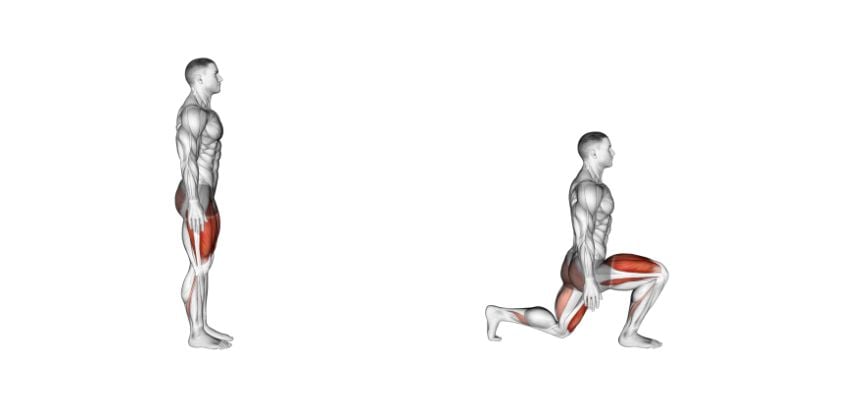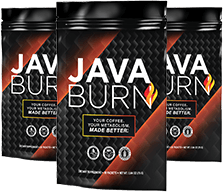As we become old, our our bodies undergo many various modifications. One such change is that we have a tendency to lose muscle mass later in life. This course of, referred to as sarcopenia, usually begins in our 40s and 50s and continues on for the remainder of our lives.
Luckily, there are some steps we are able to take to limit the effects of sarcopenia. One of one of the best methods to cease this course of is exercise, and resistance training exercise particularly.
In this submit, I’ll define a number of the finest exercises that you must embody in your routine to restrict the quantity of muscle you lose in your 50s and past. In some circumstances, you might even find a way to reverse the consequences of this course of and acquire muscle throughout this era of life.
9 Best Strength Exercises to Keep Fit and Strong After 50

Do these exercises usually to construct and preserve your strength in your 50s and past.
1. Squats
Squats emphasize most of the muscles of the lower body. Plus, squatting is an extremely functional movement, as we need to perform a squat any time we want to stand up, sit down, or perform similar tasks throughout the day.
How to Perform
- Start standing, with your feet about hip-width apart.
- Next, bend your knees as you lower your buttocks toward the floor.
- Once you’ve reached the bottom of your range, stand back up to complete the rep.
- Complete 10-12 reps per set for 3 sets per session.
2. Bridges
The glutes are one of the most important muscle groups in the body. These powerful muscles keep us upright and allow us to produce explosive force when we need to. Bridges isolate the glutes and help to keep them strong, no matter how old we get.
How to Perform
- Lie on your back with your knees bent and your feet flat on the floor.
- Push your feet into the floor in order to raise your buttocks off of the ground.
- Hold this contraction for 3 seconds, then slowly return to the starting position to complete the rep.
- Perform 10-15 reps per set for 3 sets per session.
3. Standing Shoulder Press


Pressing overhead helps to increase the stability and strength of the shoulder region. Primarily, this move emphasizes the deltoids, triceps, and other key muscles of the upper body.
How to Perform
- Start standing, with one dumbbell in each hand.
- Hold the dumbbells at your shoulders with your palms facing forward (or with your palms facing each other, if you prefer).
- Press the weights up toward the ceiling, then return them back to the starting position to complete the rep.
- Perform 10-12 reps per set for 3 sets per session.
4. Bodyweight Rows
Bodyweight movements are extremely helpful for independence in old age. If an older person should suffer a fall, the ability to pull (or push) himself back up is essential. This exercise works the biceps, lats, and a few other back and shoulder muscles.
How to Perform
- Using a doorway, bar, or suspension strap, grasp the apparatus with both hands.
- Walk your feet forward until your body is parallel to the ground.
- Pull your chest toward the bar, keeping your back straight.
- Once you’ve reached the top of your range, slowly lower yourself down to the starting position.
- Repeat in this manner for 10-15 reps per set, for 3 sets per session.
5. Planks
Isometric exercises, such as planks, are terrific for strengthening the core musculature. Better yet, the exercise can be easily modified to make it easier or harder depending on your current ability level.
How to Perform
- Place your forearms on the ground, with your elbows directly below your shoulders.
- Keep your toes on the ground with your feet close to one another.
- Maintain a flat spine as you contract your abdominal muscles.
- Hold this position for 30 seconds and repeat 4 times per session.
6. Press-ups
A favorite exercise for generations: press ups (also known as push-ups) work the chest, triceps, and various shoulder muscles. This is an important functional movement that we all need to use every day.
How to Perform
- Place your hands on the ground (or on an elevated surface, to make it easier).
- Position your toes on the ground, with your legs extended and your feet about hip-width apart.
- Slowly, lower your chest down toward the ground.
- Once you’ve reached the bottom of your range, push yourself back up to the starting position to complete the rep.
- Perform 10-12 reps per set for 3 sets per session.
7. Lunges


Much like squats, lunges are helpful for building functional lower body strength. However, lunges also provide an added bonus by incorporating balance and single-leg strengthening.
How to Perform
- Start standing, with the right leg forward and the left leg a few feet behind you.
- Next, bend your right leg and aim to bring your left knee down to the ground slowly.
- Once you’ve reached the bottom of your range, stand back up to complete the rep.
- Perform 10-12 reps per set, for 3 sets per session.
8. Bench Press


The bench press works the same muscles as the pushup, but in what is known as an “open-chain” manner. Open chain movements, where your hands are free to move around, allow for increased stabilizer muscle work, increasing the overall difficulty and effectiveness of the exercise.
How to Perform
- Lie flat on a bench, holding one dumbbell in each hand.
- Press the weights up toward the ceiling.
- Slowly lower the weights back down to your chest to complete the rep.
- Perform 10-12 reps per set, for 3 sets per session.
9. Band Anti-Rotations
Band exercises, such as anti-rotations, are very useful for increasing core stability. This movement works the obliques and shoulders, leading to better functional ability in day-to-day life.
How to Perform
- Start standing, holding the band with both hands, facing perpendicular to the length of the band.
- Ensure that the band has tension on it, and push outward, resisting the urge to rotate due to the pull from the band.
- Perform 10-12 reps per set, per side, for 3 sets per session.
Conclusion
By combining these moves together into one session, you can significantly increase your strength while fighting the effects of aging. Attempt to perform this routine 2-3 times per week for maximum benefit.
Don’t wait until it’s too late! Start performing resistance training now to combat the aging process.
Works Cited
- Delmonico MJ, Beck DT. The Current Understanding of Sarcopenia: Emerging Tools and Interventional Possibilities. Am J Lifestyle Med. 2016 Jul 7;11(2):167-181. doi: 10.1177/1559827615594343. PMID: 30202329; PMCID: PMC6125026.
- Yoo SZ, No MH, Heo JW, Park DH, Kang JH, Kim SH, Kwak HB. Role of exercise in age-related sarcopenia. J Exerc Rehabil. 2018 Aug 24;14(4):551-558. doi: 10.12965/jer.1836268.134. PMID: 30276173; PMCID: PMC6165967.


















Discussion about this post